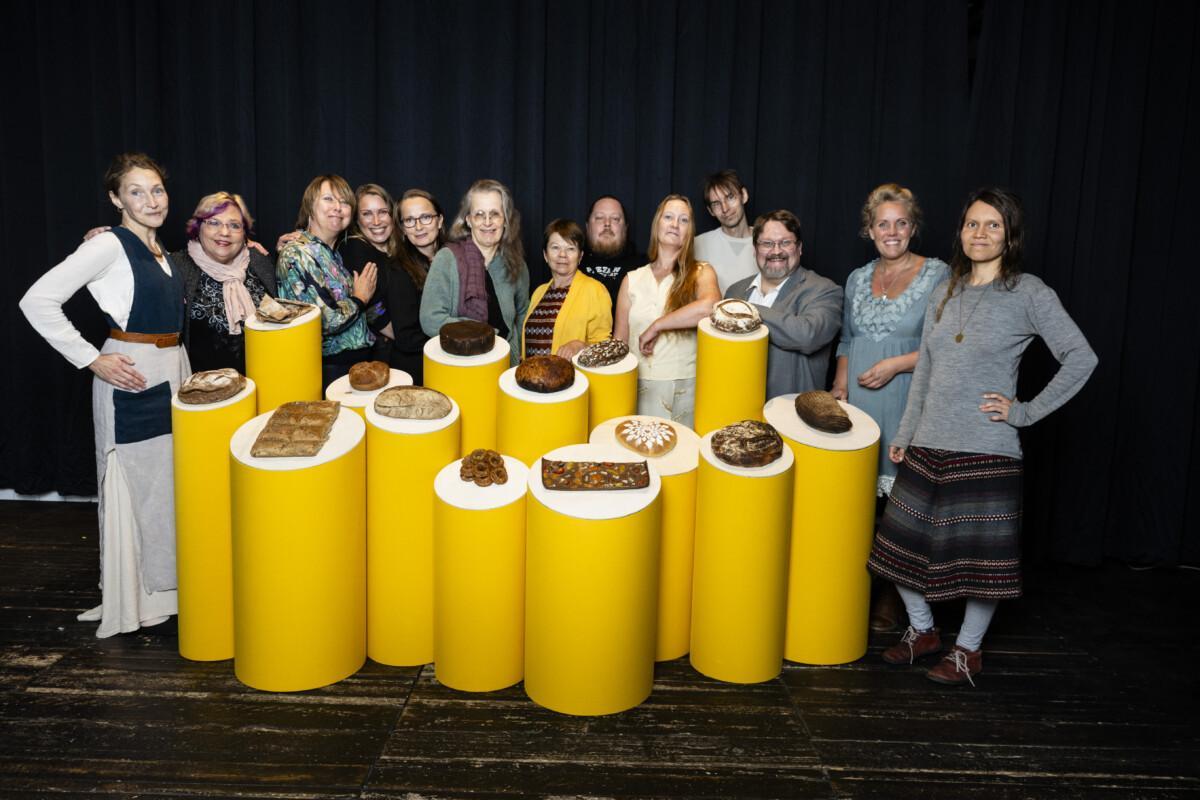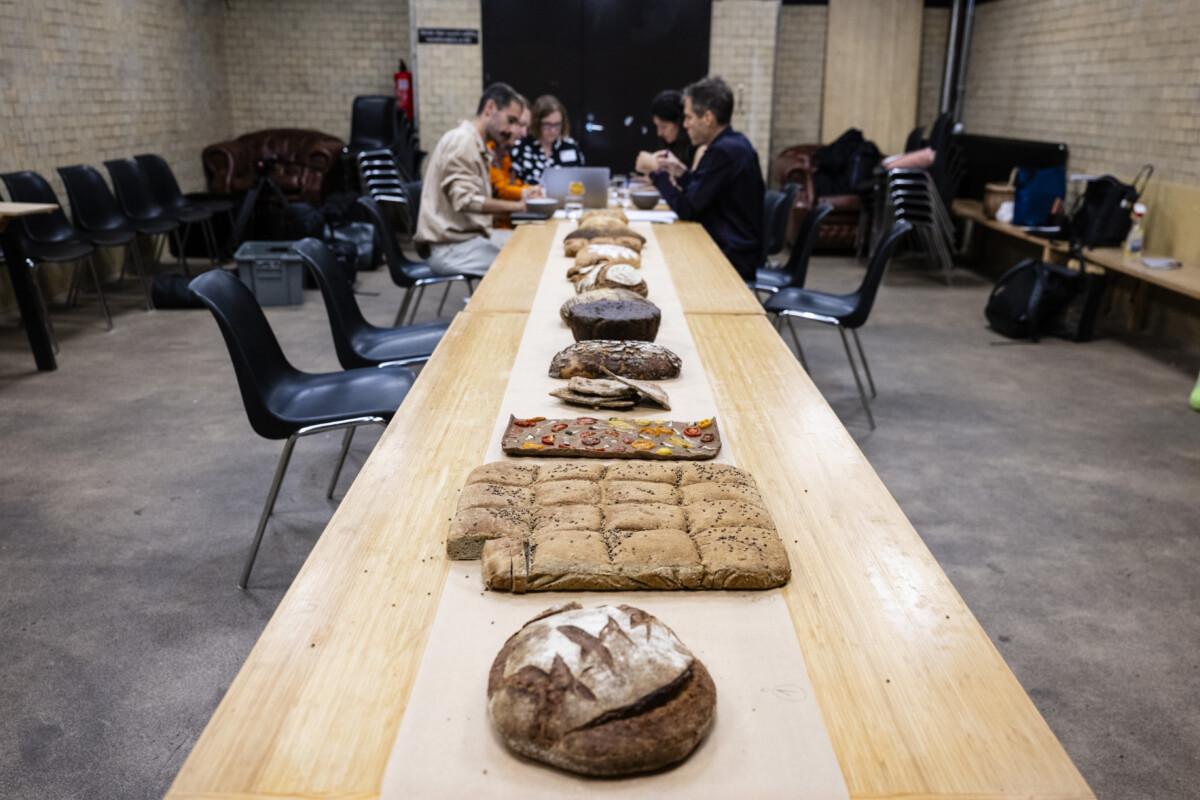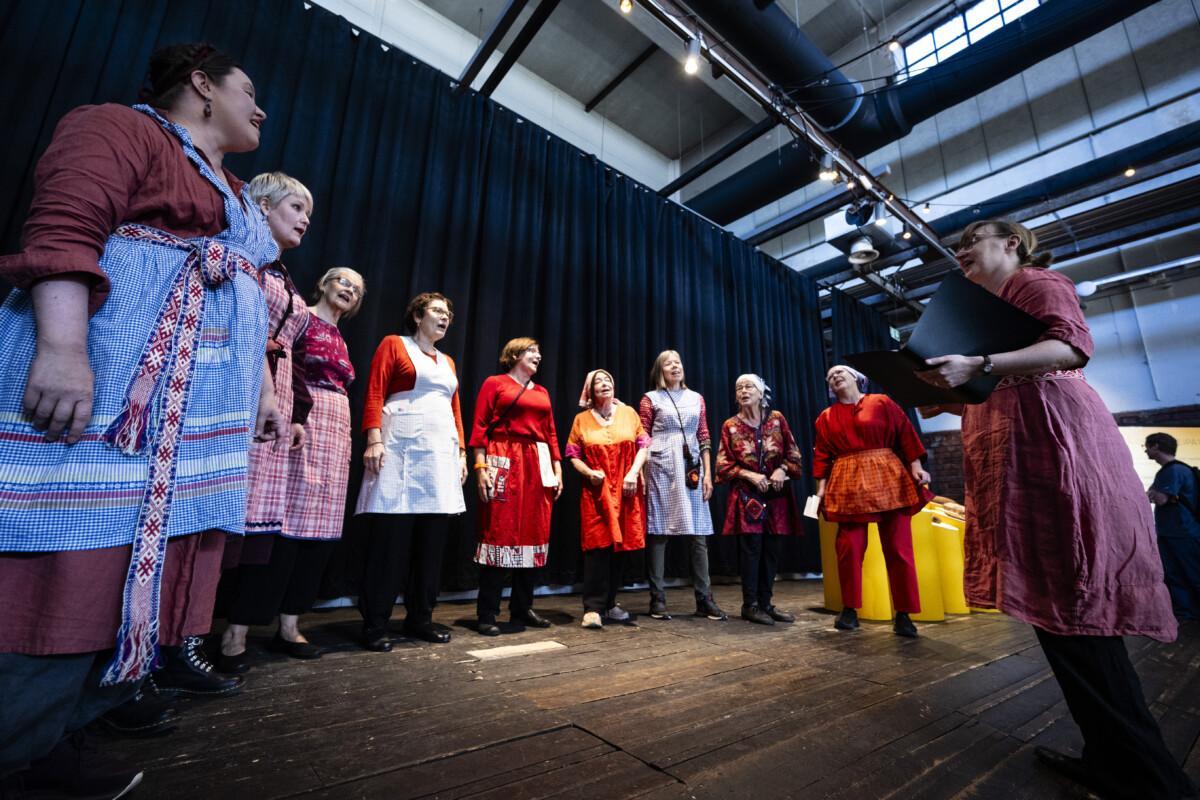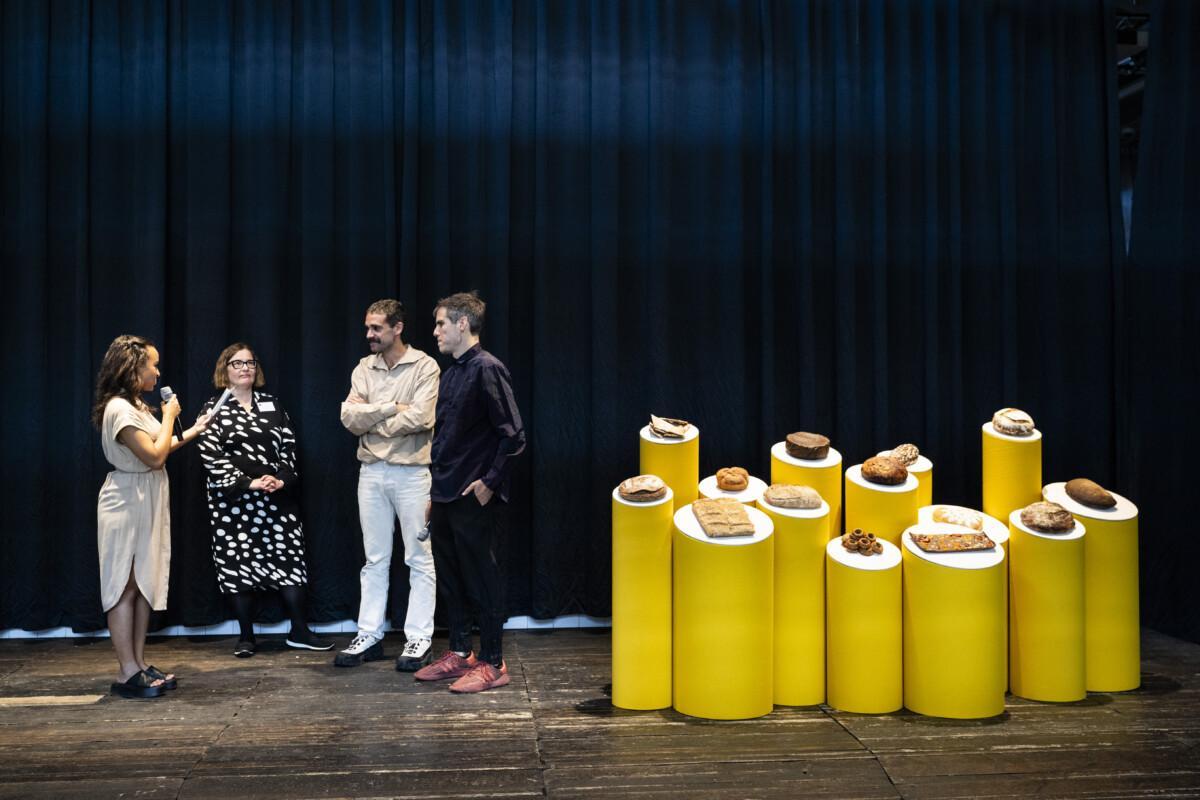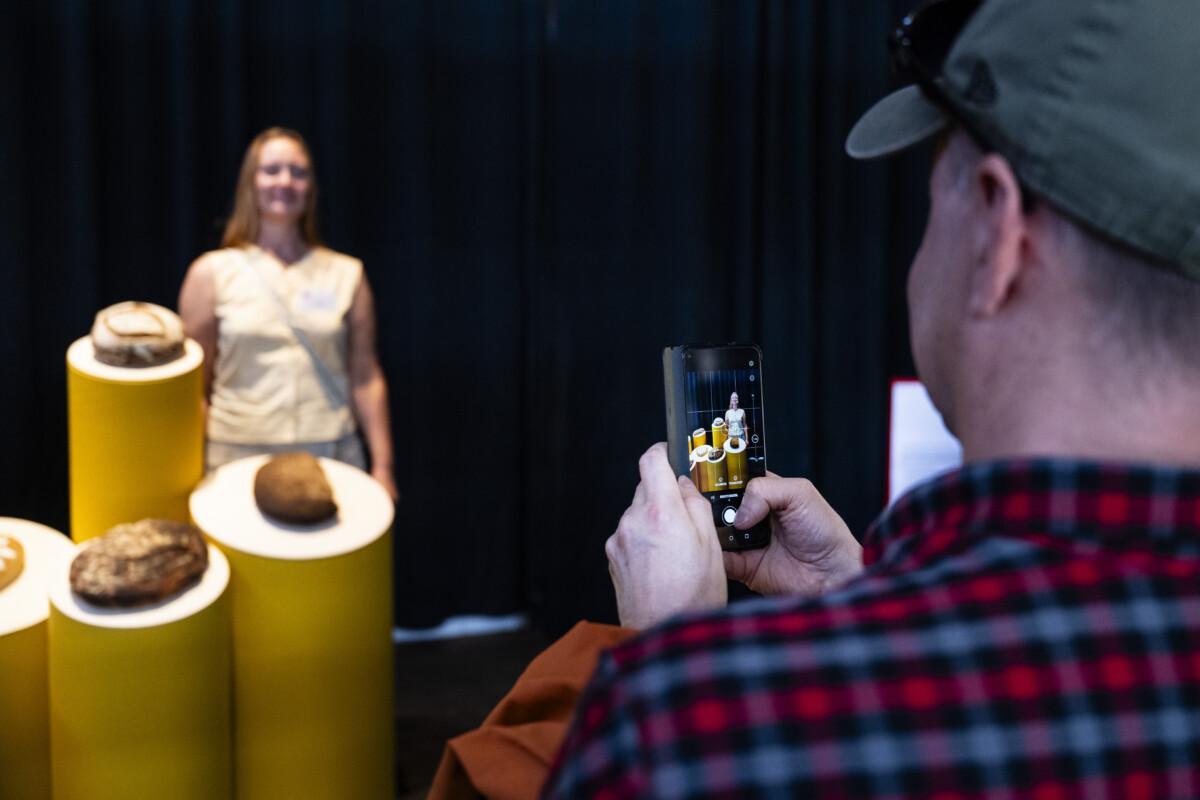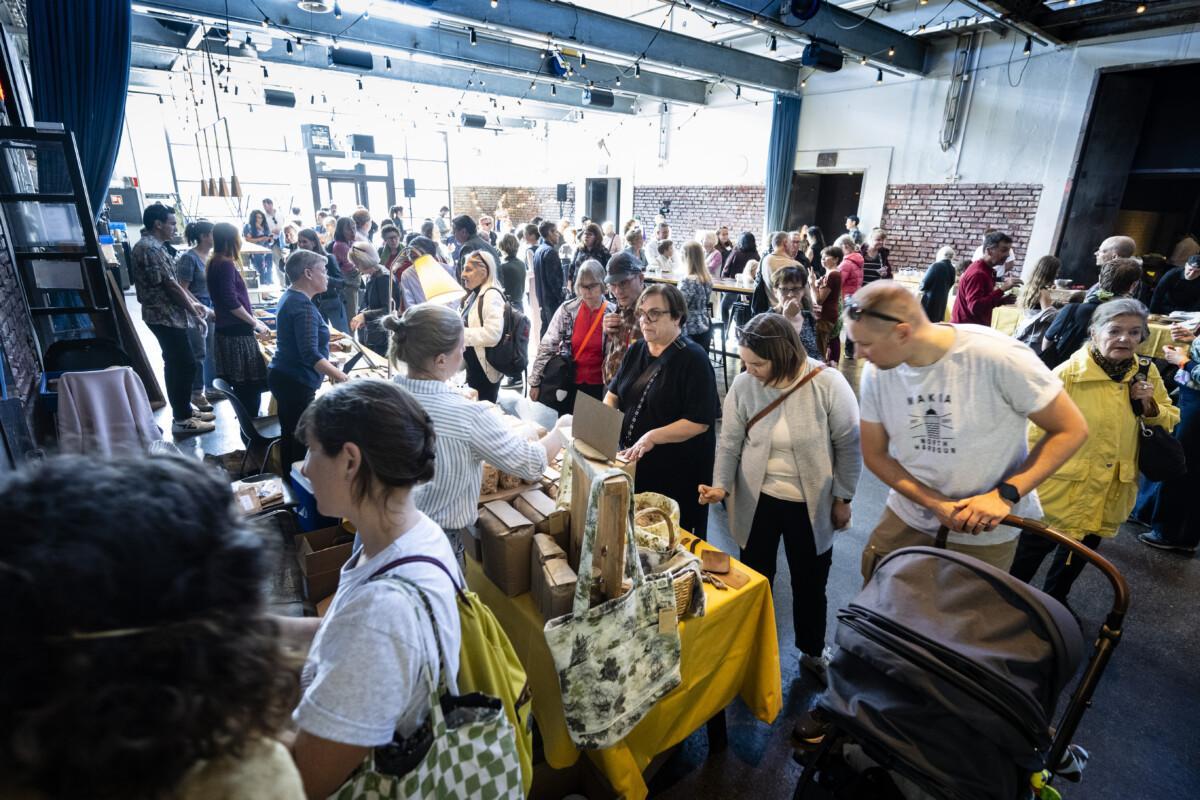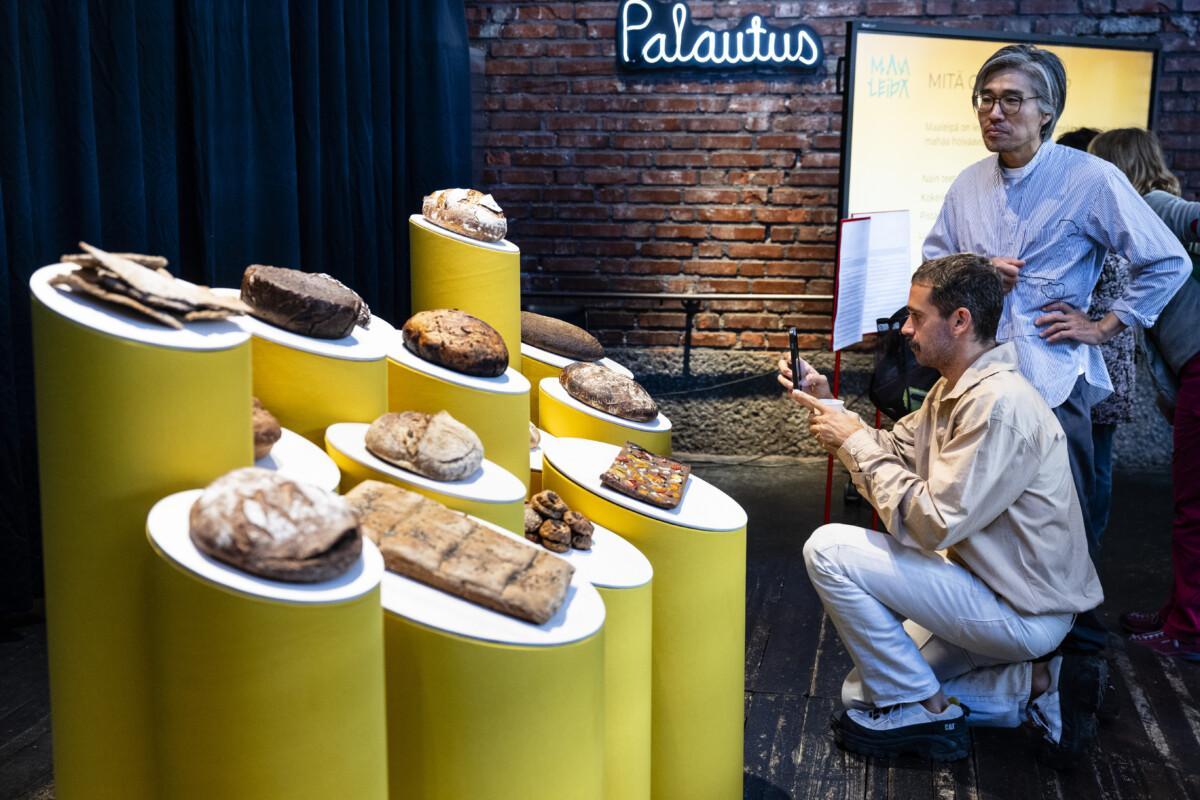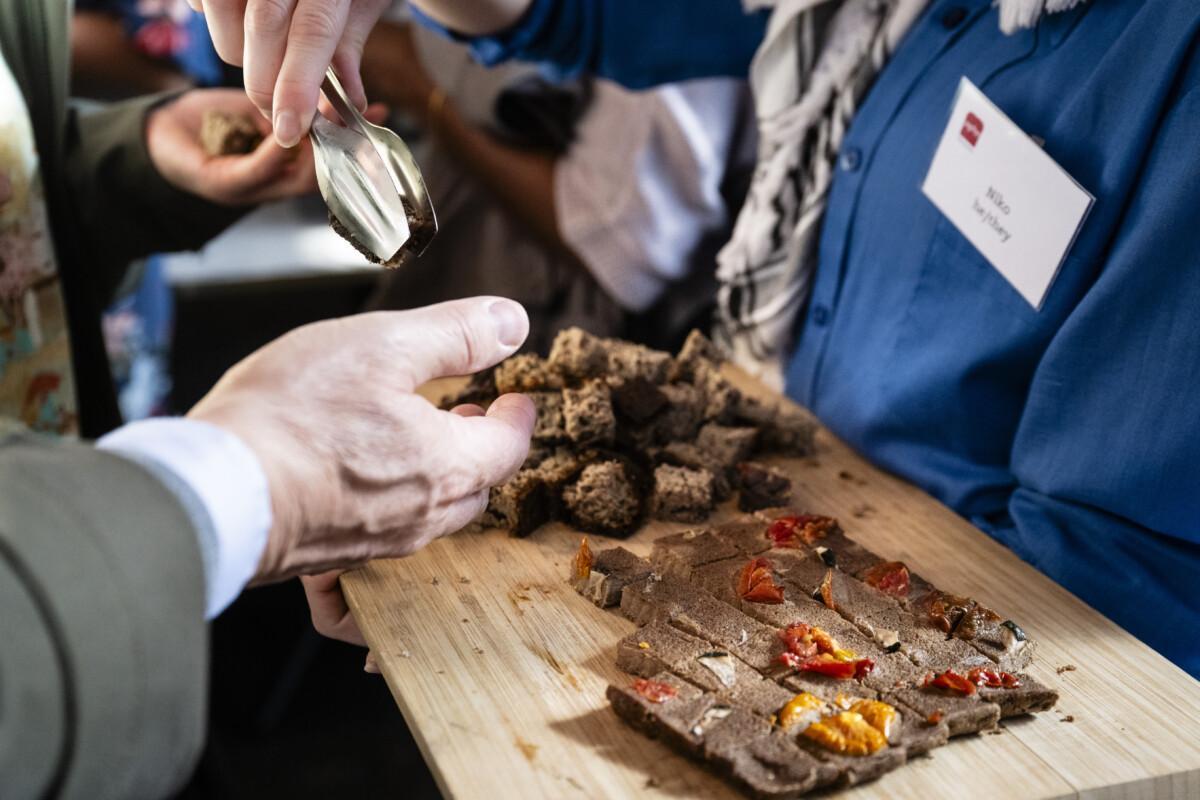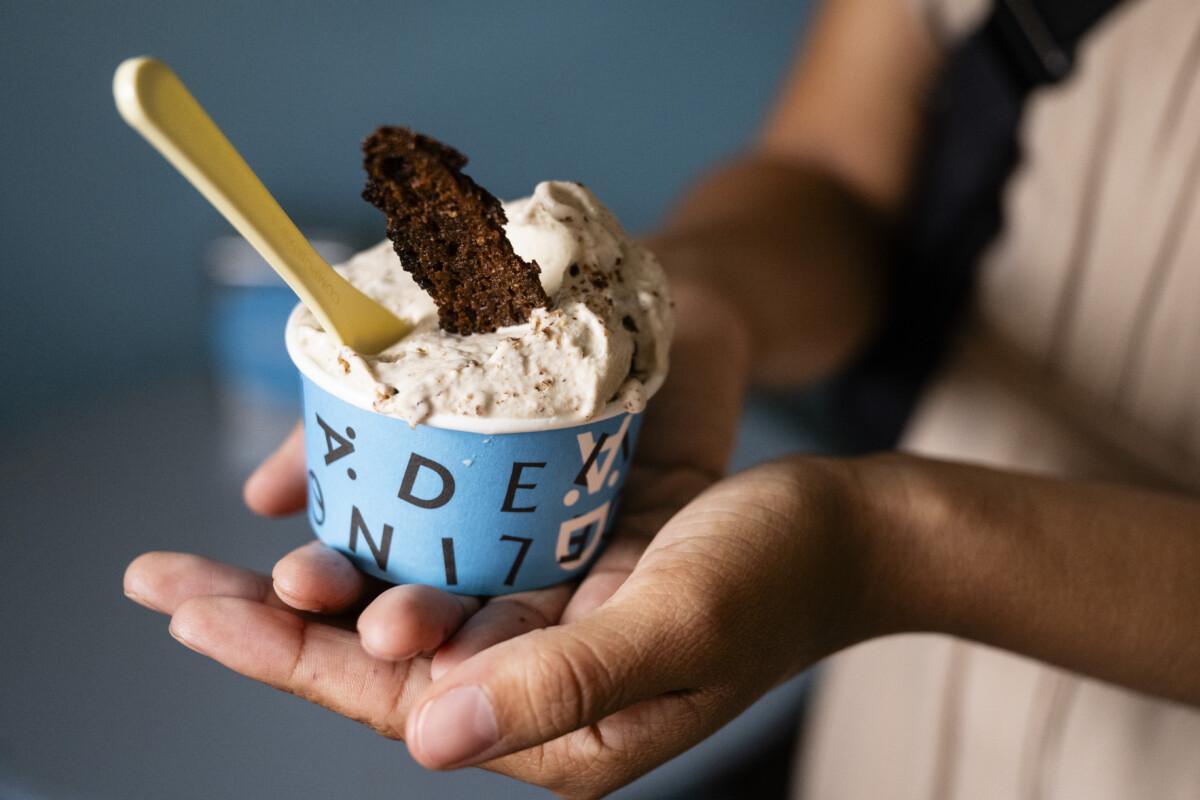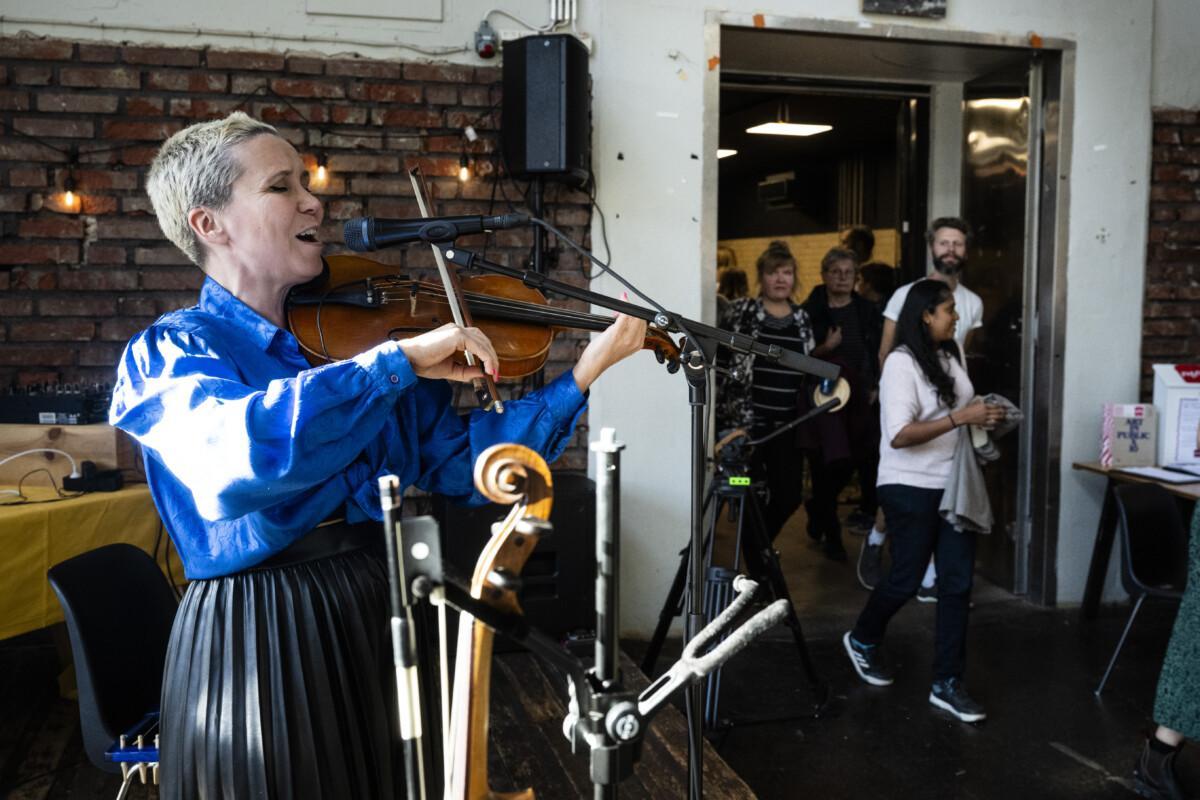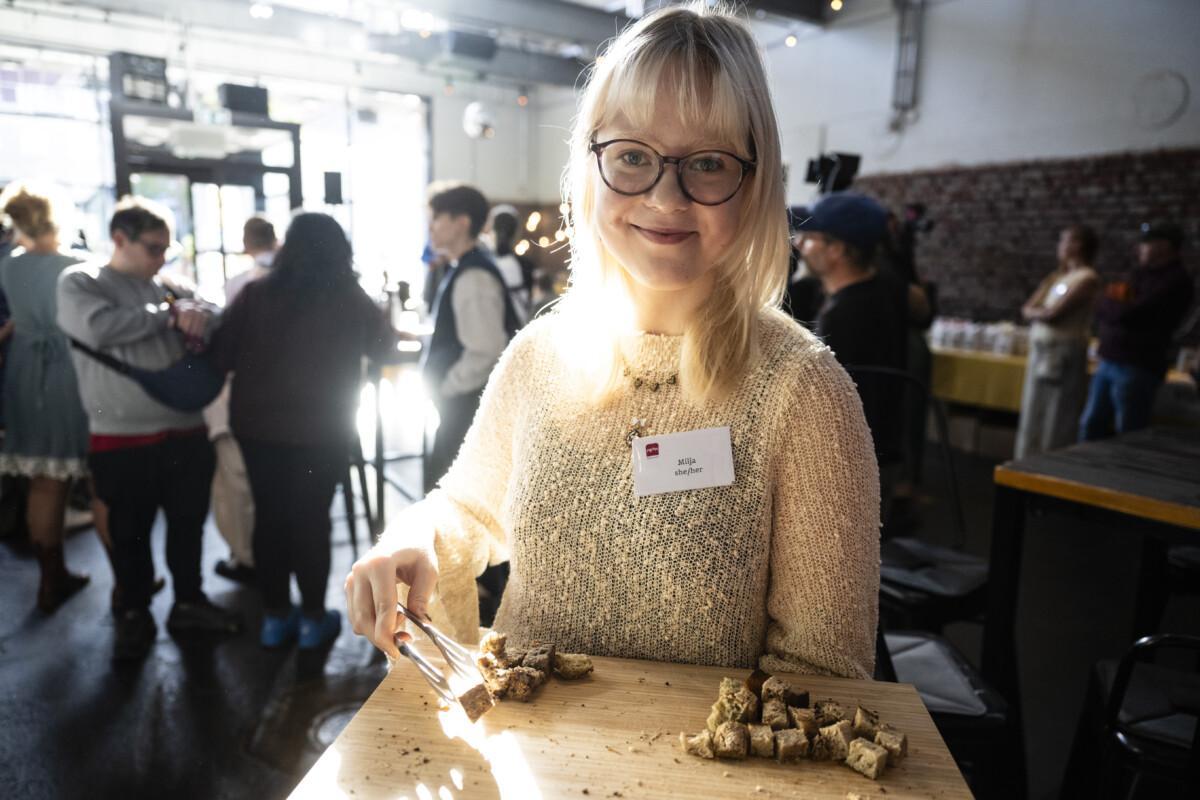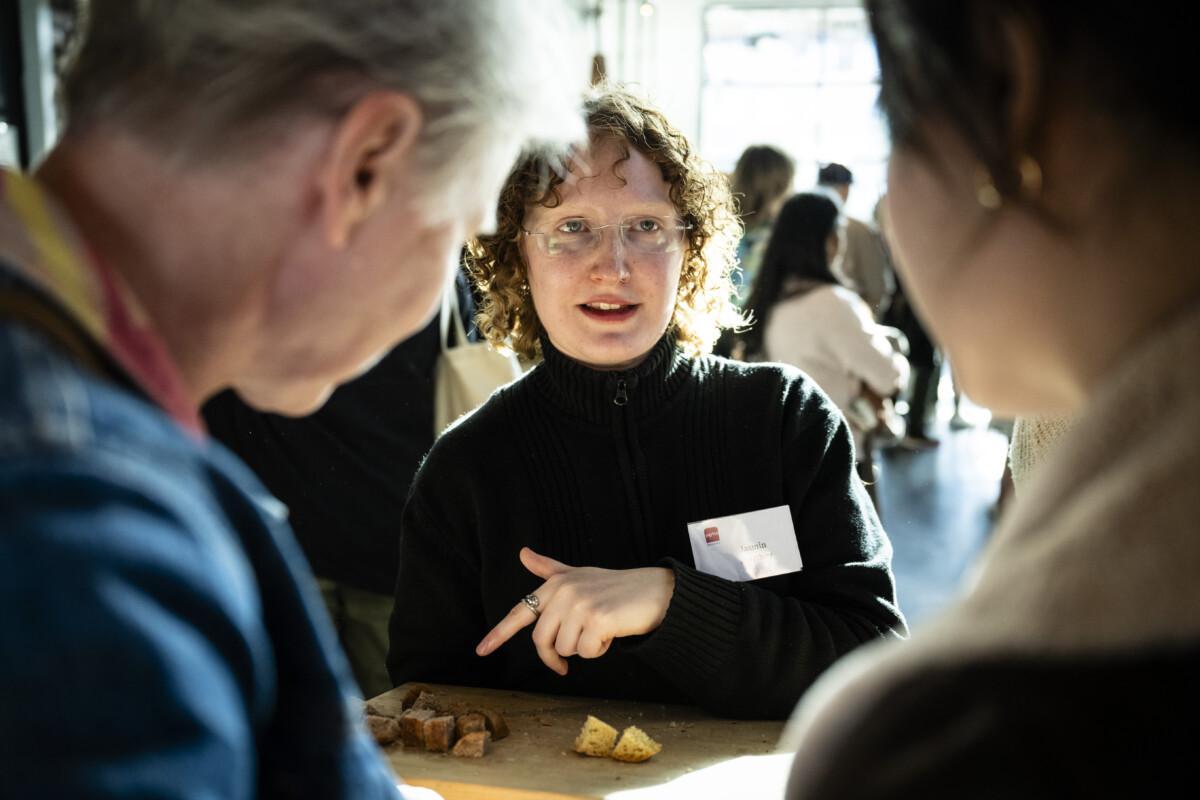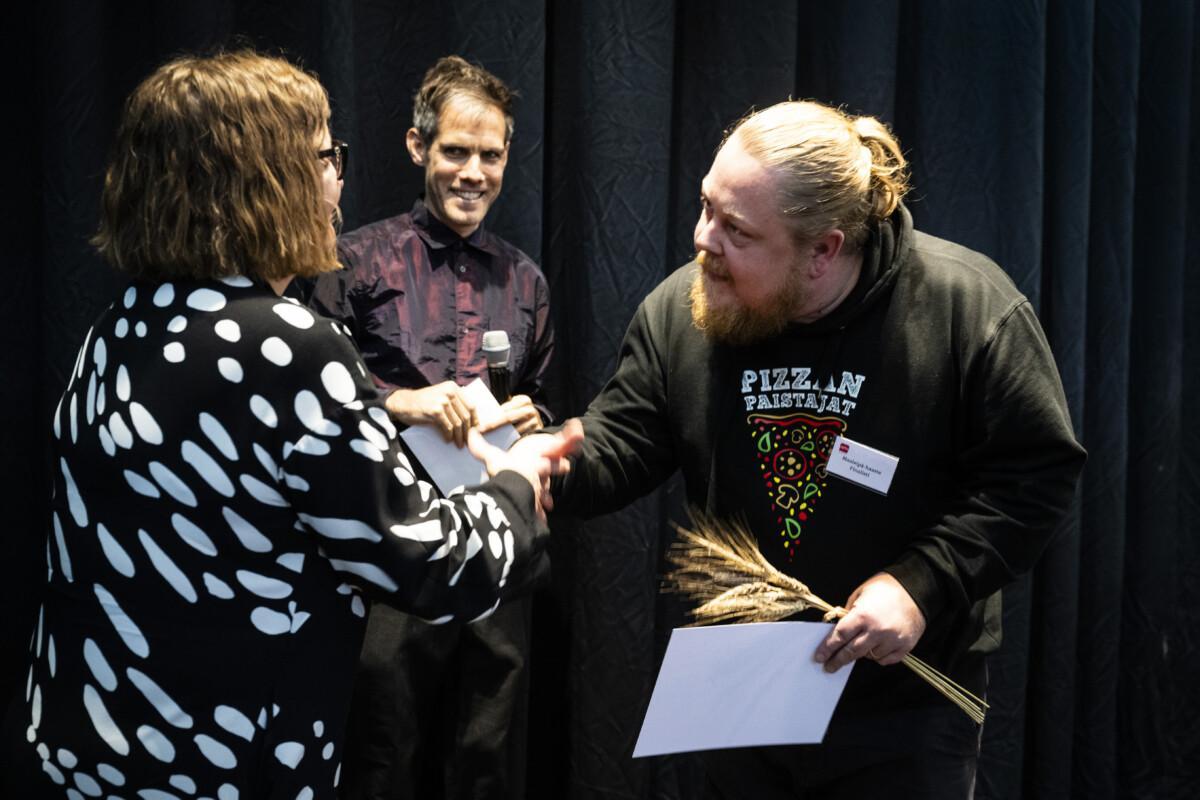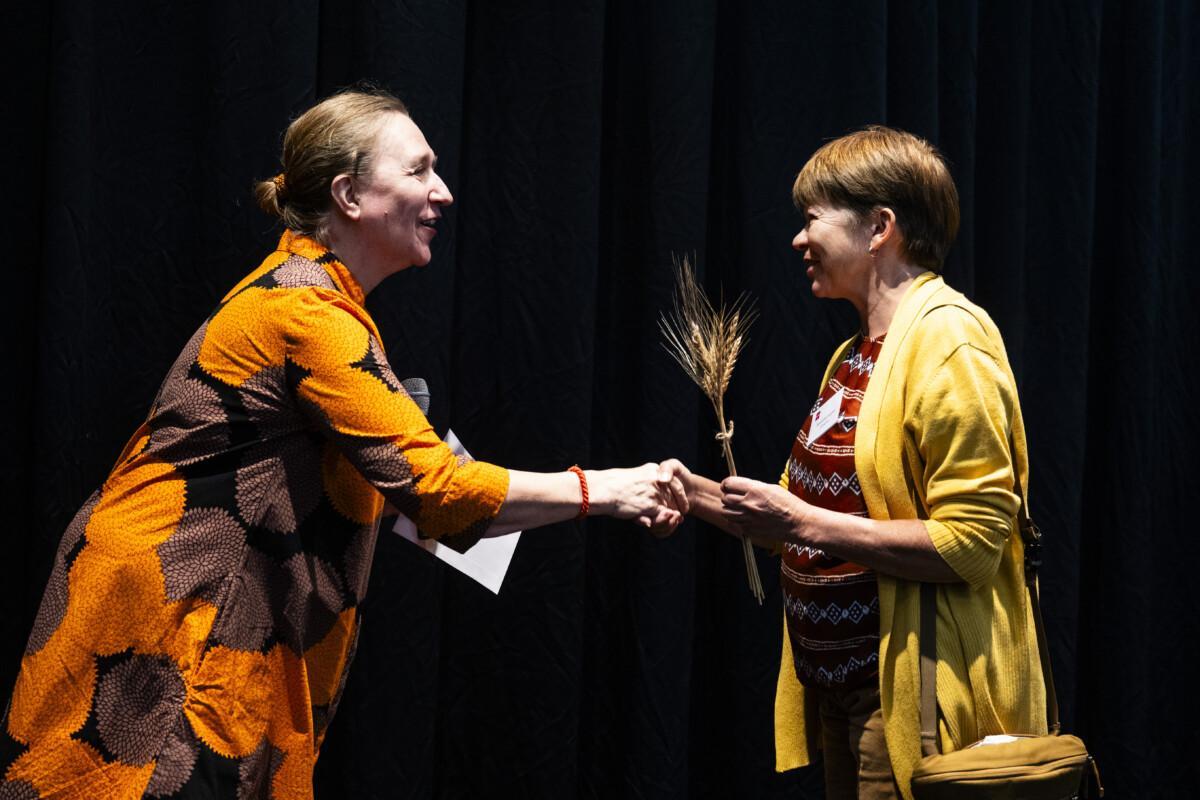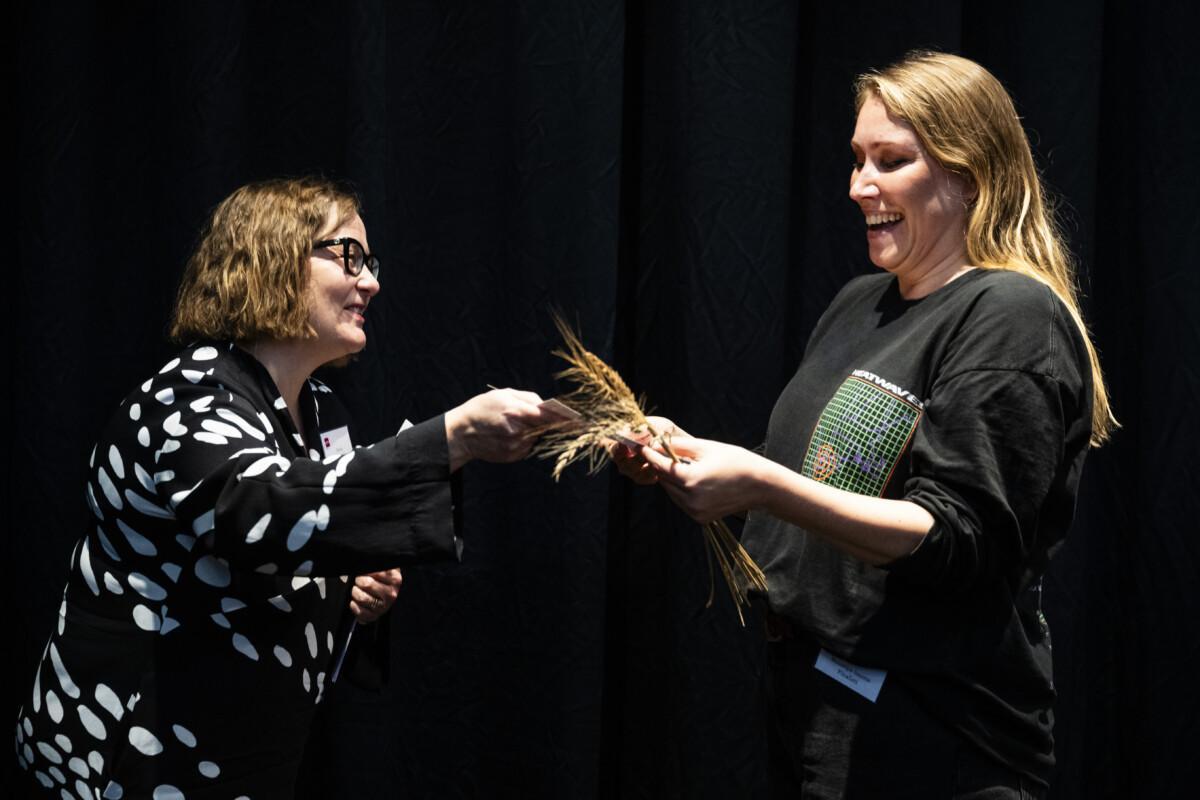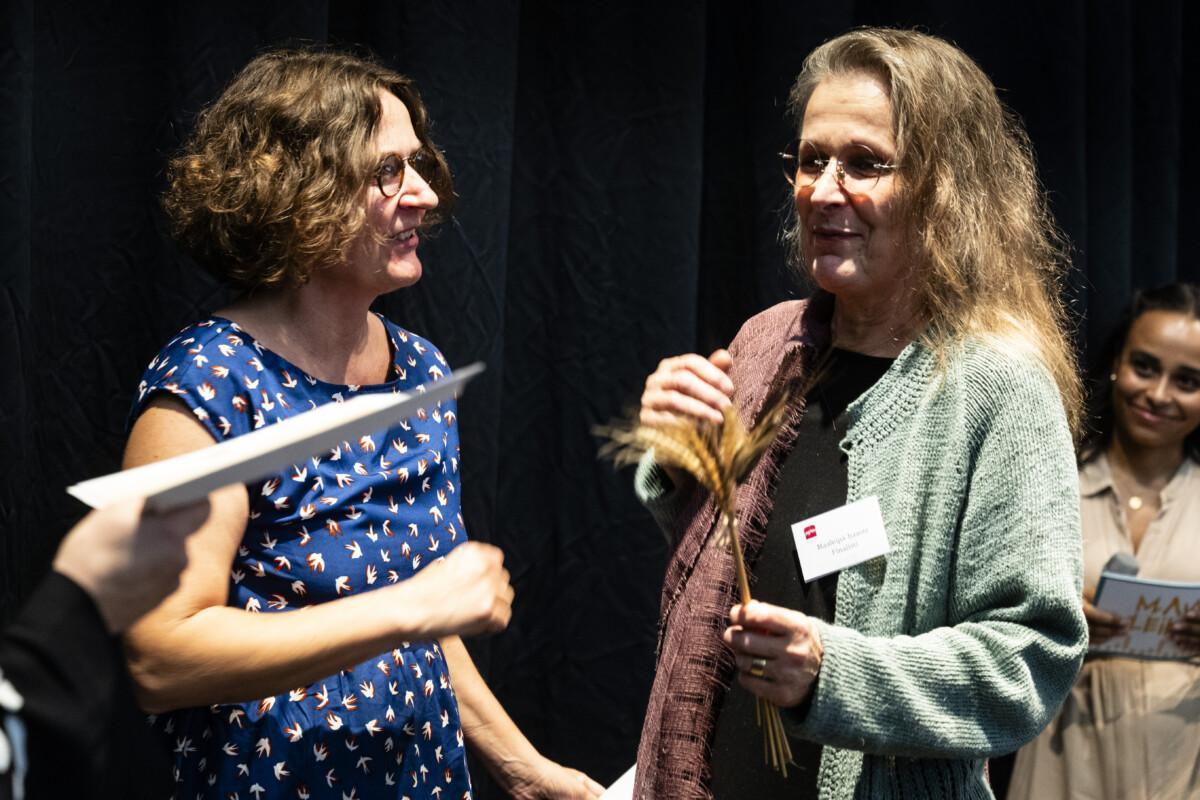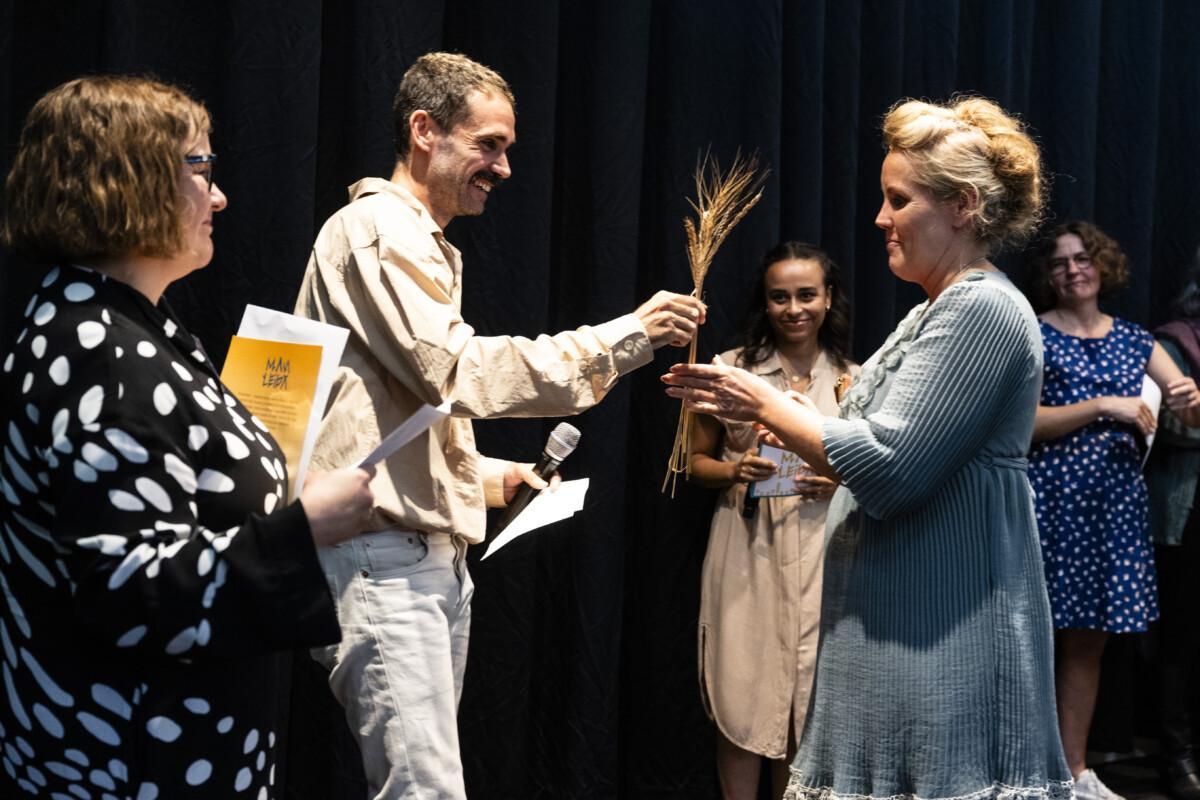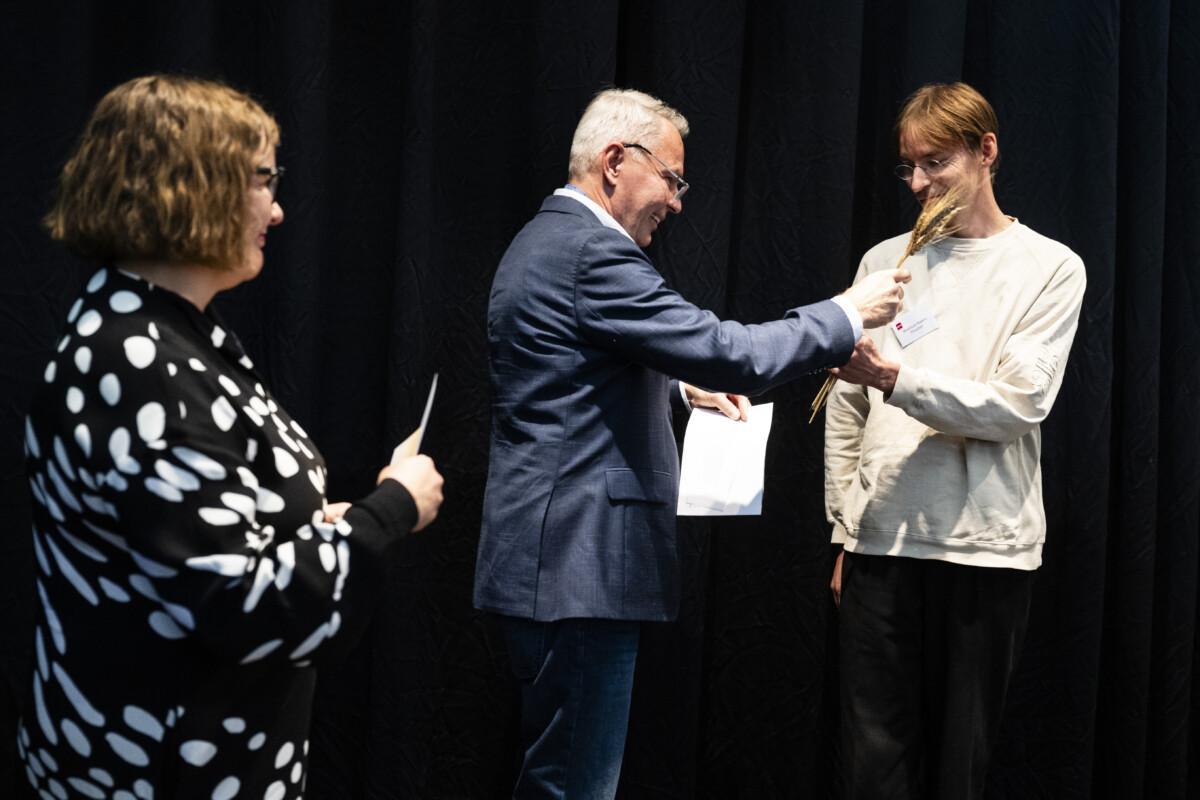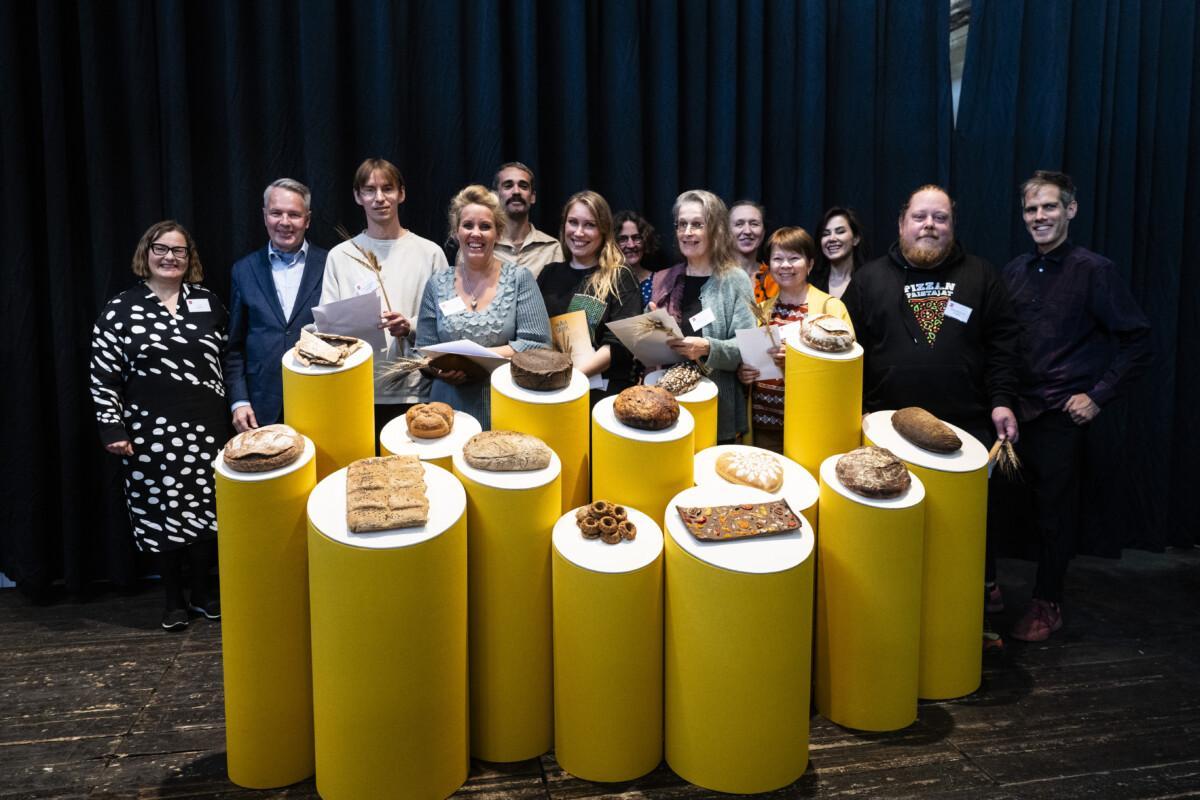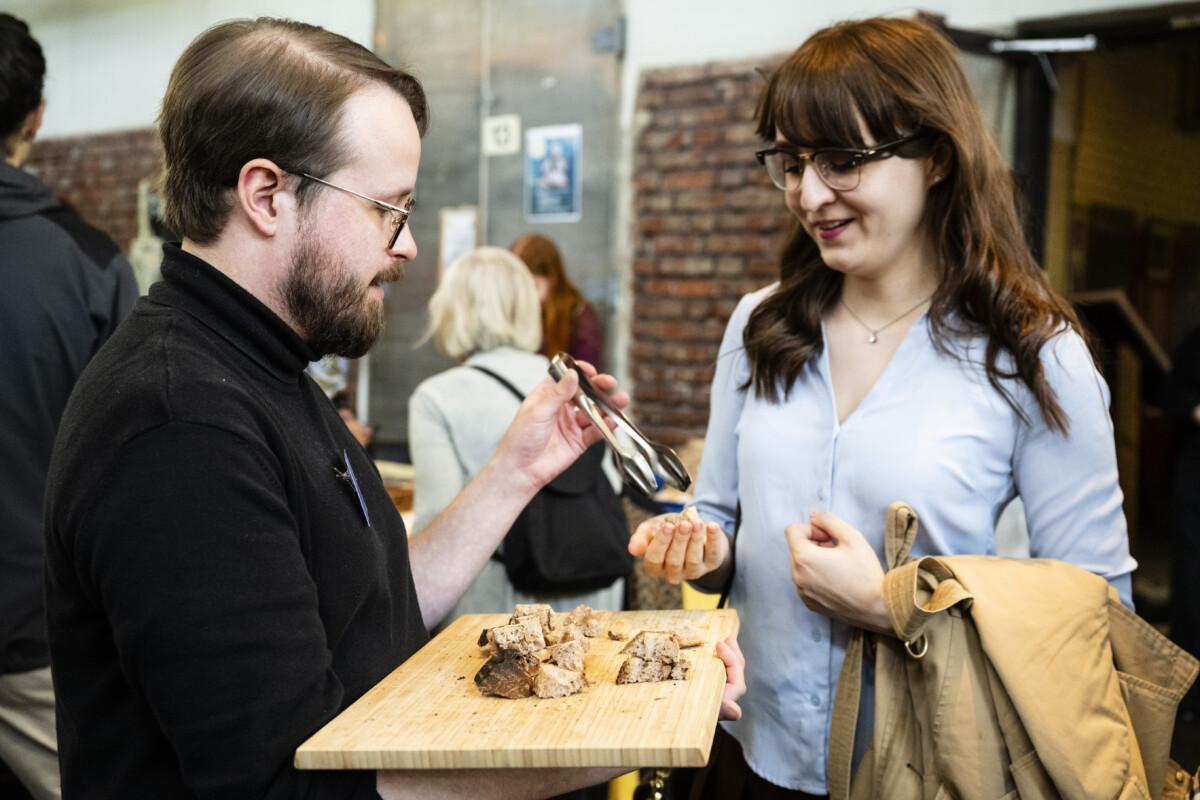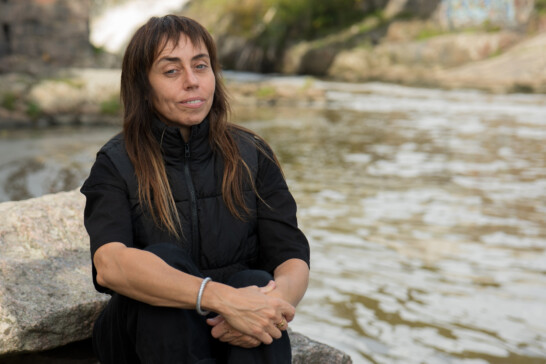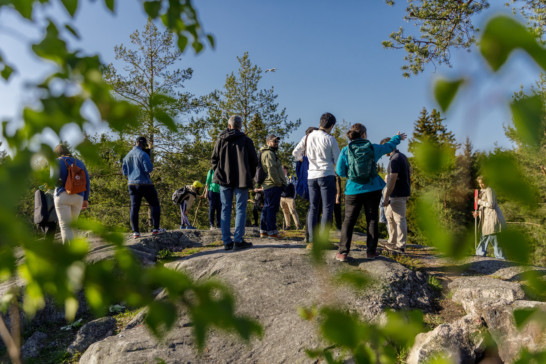News
Maaleipä Recipes for the Future of the Soil
Fourteen different bread recipes for the future of the soil submitted to the Maaleipä Challenge have now been published. Over the spring and summer, London-based Cooking Sections’ IHME Helsinki Commission 2024 appealed for bread recipes that combine the wellbeing of the soil and the human gut. The best breads were celebrated at the Maaleipä Feast on Saturday, 21 September. At the end of the Feast, the jury awarded prizes to six breads and bakers.
The Maaleipä Challenge’s First Prize went to Jani Anders Purhonen’s Wood Bread. This combines sourdough with “pettu” flour (made with pine bark) and acorns, which could become a significant part of our diet and food security. The jury see Wood Bread as combining the past and the future:
Wood bread takes an ingredient resorted to in times of scarcity and transforms it into a taste of ecological biodiversity and vitality for future generations. It is a bread that encourages people to develop ties to the forest, reduce waste, and encourage farms to integrate oak trees into food production. Applying systems thinking, it is a bread that expands what agriculture, food and land use should be in Finland, and what we should all be eating.
All the finalist breads boldly combined diverse ingredients and used a variety of grains. Second Prize winner Yellowfoot Levain by Malin Furu, a chef from the Zum Beispiel restaurant in Porvoo, combined powdered yellowfoot mushrooms with Rosala-Nyby wholemeal organic wheat flour, which incorporates ancient knowledge that allows it to withstand drought and extreme weather conditions. Merja Teräsvuori’s Naturally Gluten-Free Hemp Buckwheat Bread, which won Third Prize, combines buckwheat and hemp with potato and various seeds. Honourable mentions went to Jella Bertell’s Wild Spinach Sourdough Bread, Rami Oksanen’s Paimio River Roach Fish Bread, and Anna Luttinen’s Round the Baltic Sea Caraway Cake.
All fourteen finalists had thought commendably about the connection between land, sea and gut health in their recipes. Most of the breads are baked with sourdough and flours made of organic landrace grains. In addition to yesterday’s porridge and root vegetables, the breads make good use of wild herbs, local fruit and vegetables, and seeds.
IHME Helsinki uses art to promote the cultural change needed in the environmental crisis. Although the Challenge is over for now, the breads will live on. We encourage you to be inspired by these recipes, to develop new breads, and to use the word “Maaleipä” (bread for the soil) when talking about breads that sustain the soil, the sea and ourselves. The finalist recipes are all available now on the Challenge website:
